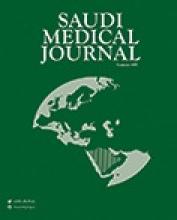12 DECEMBER 2014 ¦ GENEVA - On 10-11 December 2014, Ministers of Health and Finance of Ebola-affected countries, international organizations and development partners assembled for a high-level meeting on how to strengthen systems of health in Ebola-affected countries and agreed on what needs to be done to rebuild and strengthen essential health services in these countries.
“People in Ebola-affected countries are dying – not only from Ebola but also from other causes – because the majority of health facilities in these countries are either not functional or people are not using them for fear of contracting Ebola,” says Dr Marie-Paule Kieny, Assistant Director-General of Health Systems and Innovation, World Health Organization. “A health system has to be able to both absorb the shock of an emergency like Ebola, and continue to provide regular health services such as immunization and maternal and child care.”
Participants of the meeting discussed the need to integrate all health services from clinical care to surveillance, health promotion, disease prevention and management, and palliative care.
Given the movement of people across borders of the Ebola-affected countries, it will also be important to coordinate national health plans across borders and align surveillance systems.
Key areas for improvement
• Significantly strengthening health workforce;
• enhancing community trust, engagement, and ownership;
• ensuring development of resilient sub-national health systems.
Participants determined that substantial external financing will be needed to address key areas for improvement. This should be coordinated under the leadership of the national governments and in accordance with national plans.
The meeting agreed that all sectors of government should be involved – notably health, finance and education.
Next steps
As next steps, the Director-General of the World Health Organization, Dr Margaret Chan, invited governments to convene meetings at the national level, with key partners, to develop country specific plans. These plans should clearly identify needs in terms of health workforce, infrastructure and materials, and how to further engage communities.
Note to editors:
Participants discussed the following principles to be used across all 3 Ebola-affected countries:
1. The joint work on building resilient health systems shall be based on a foundation of country ownership and leadership with a coordinated approach by all partners to address current needs and build systems for the future.
2. Efforts to build a resilient health system will be based on specific needs identified by the affected country and their communities.
3. The work in supporting countries will require long-term commitments from all key actors. The long-term gains associated with building a functional health systems will not be compromised for “quick wins”.
4. Efforts around building resilient health systems in the countries will follow the principles of effective development cooperation and the International Health Partnership, including coordination under government leadership, alignment to national priorities and harmonization of (monetary and non-monetary) support among development partners.
5. Countries will be supported towards providing integrated health services, which will encompass disease surveillance, the management and delivery of quality and safe health services so that people receive a continuum of health promotion, prevention, diagnosis, management, rehabilitation and palliative care services, through the different levels and sites of care within the health system, and according to their needs throughout the life course.
6. Ongoing efforts to build capacities for the prevention, detection and response to public health events, as planned under the International Health Regulations will be scaled up. The lessons learnt during the current Ebola response will be used and surveillance of rare and severe events better integrated into the health systems, from communities to the central level.
7. A strong focus on accountability for results of both country governments and partners will underpin all efforts. An accountability framework will identify a core set of indicators for results and resources and explore opportunities to improve access to information.
Available from: http://www.who.int/mediacentre/news/releases/2014/health-systems-ebola/en/
New Peer Reviewers
Join our team of expert peer reviewers for Saudi Medical Journal by registering through the website at http://www.smj.org.sa/_Authors/ and select “register now” or sending an enquiry and summarized CV to info{at}smj.org.sa. Note that SMJ reviewers, whose reviews are returned on time and are judged satisfactory by the Editors, may receive 1 CME credit per review, with a maximum of 5 credit per year, from the Saudi Council for Health Specialties.
- Copyright: © Saudi Medical Journal
This is an Open Access journal and articles published are distributed under the terms of the Creative Commons Attribution-NonCommercial License (CC BY-NC). Readers may copy, distribute, and display the work for non-commercial purposes with the proper citation of the original work.






